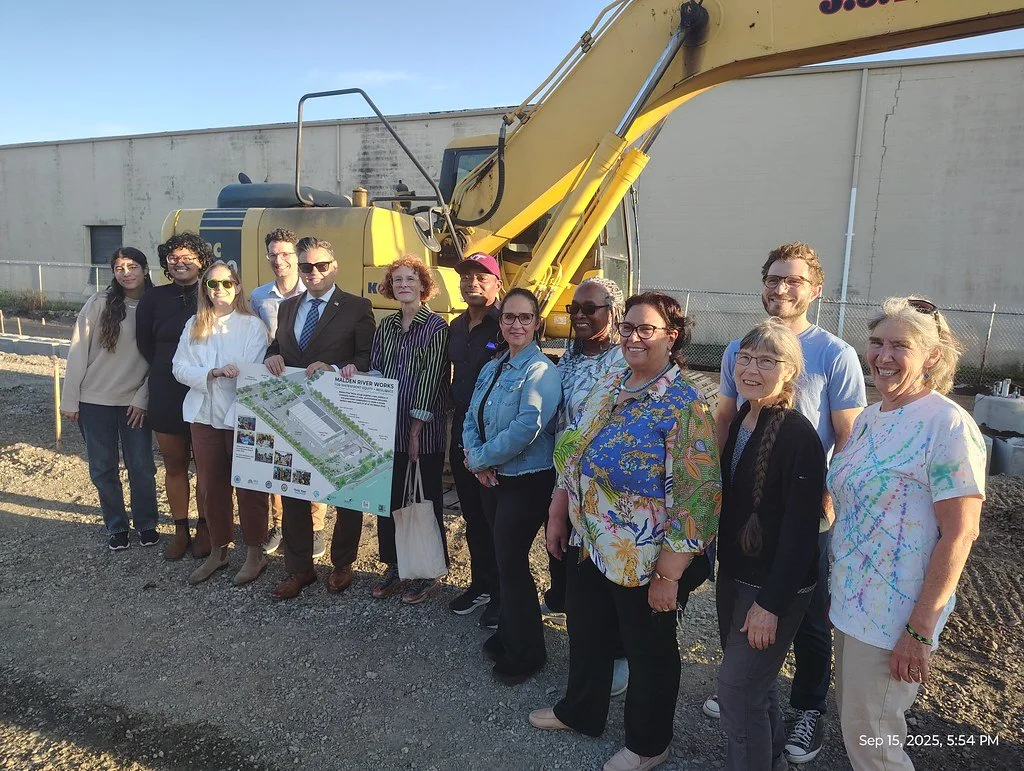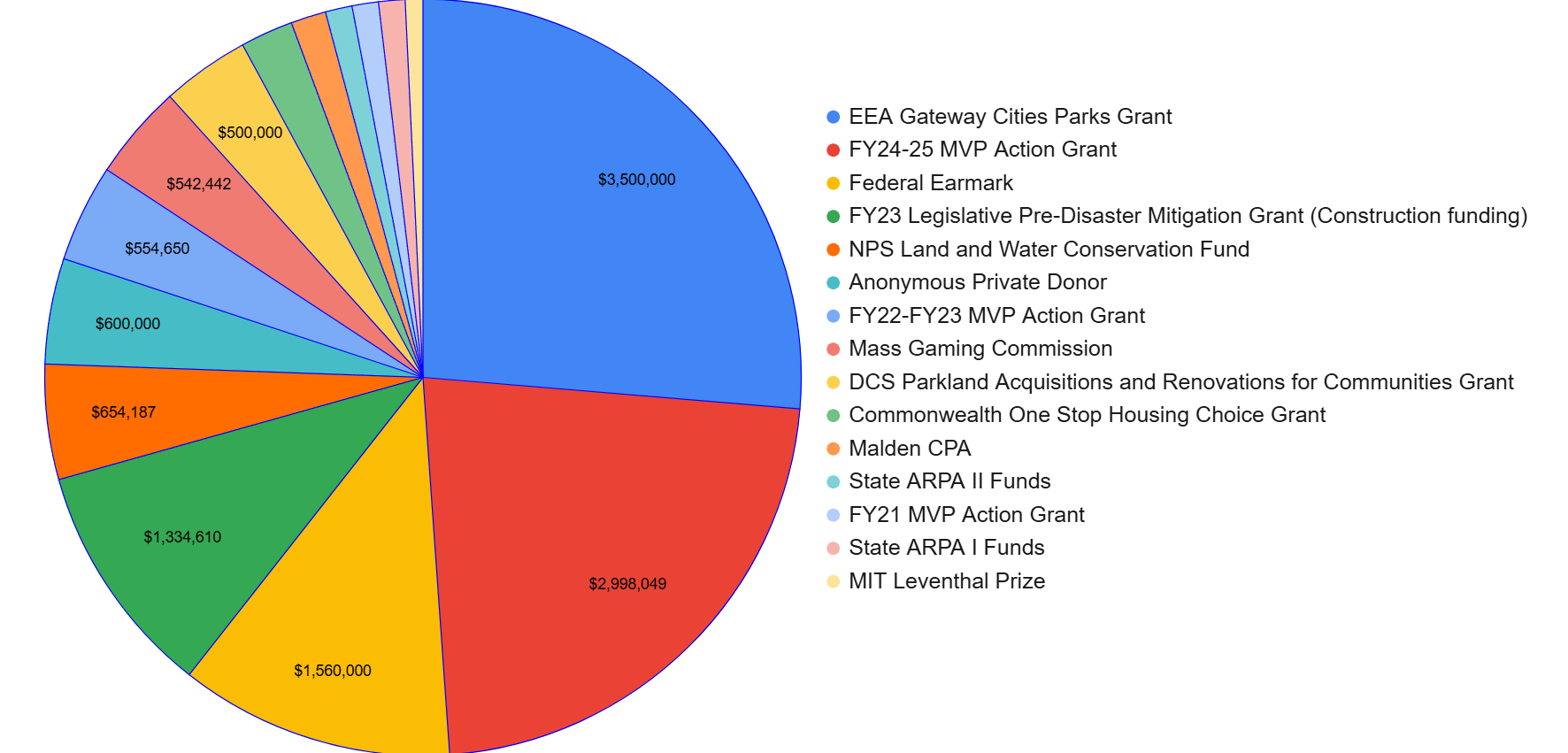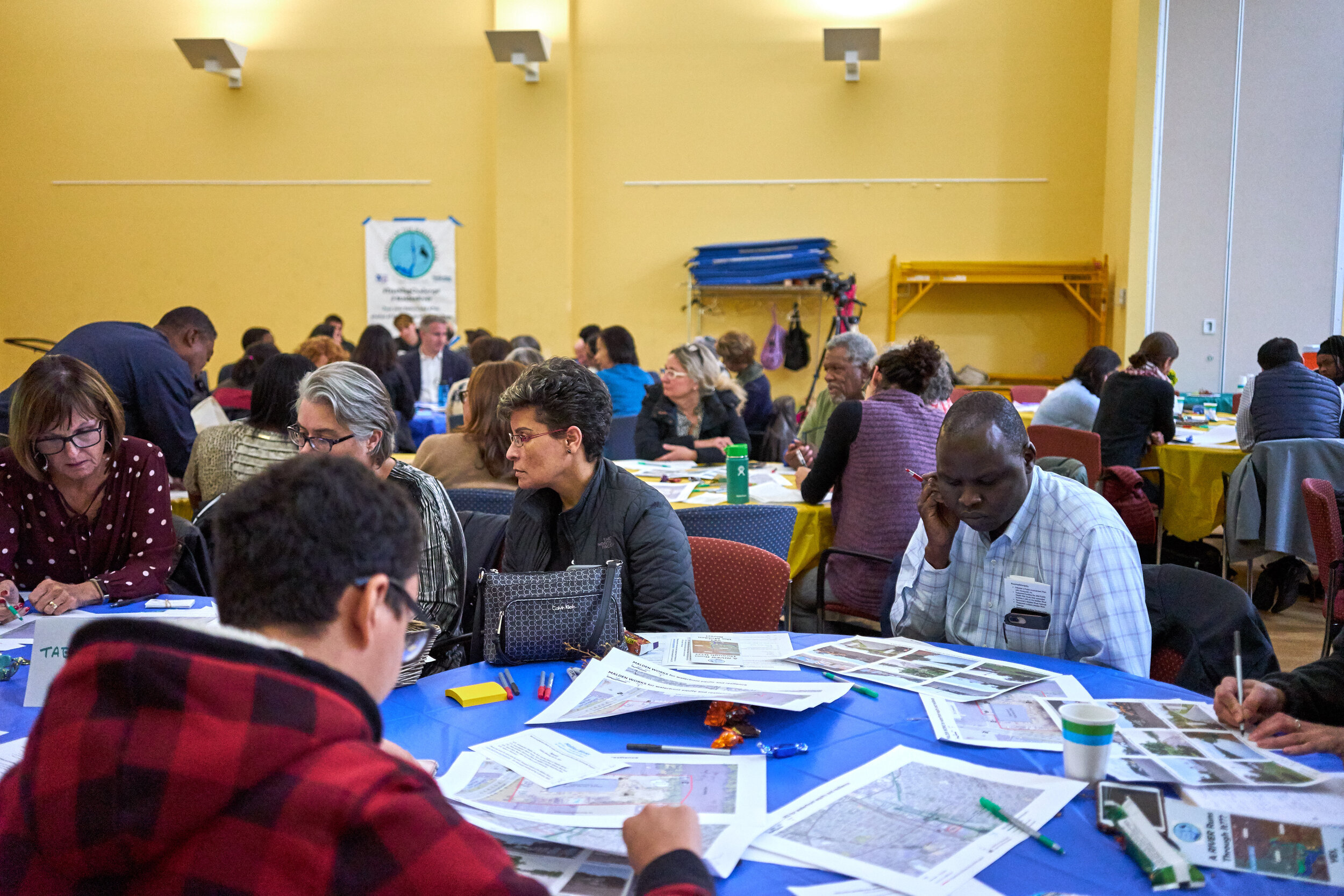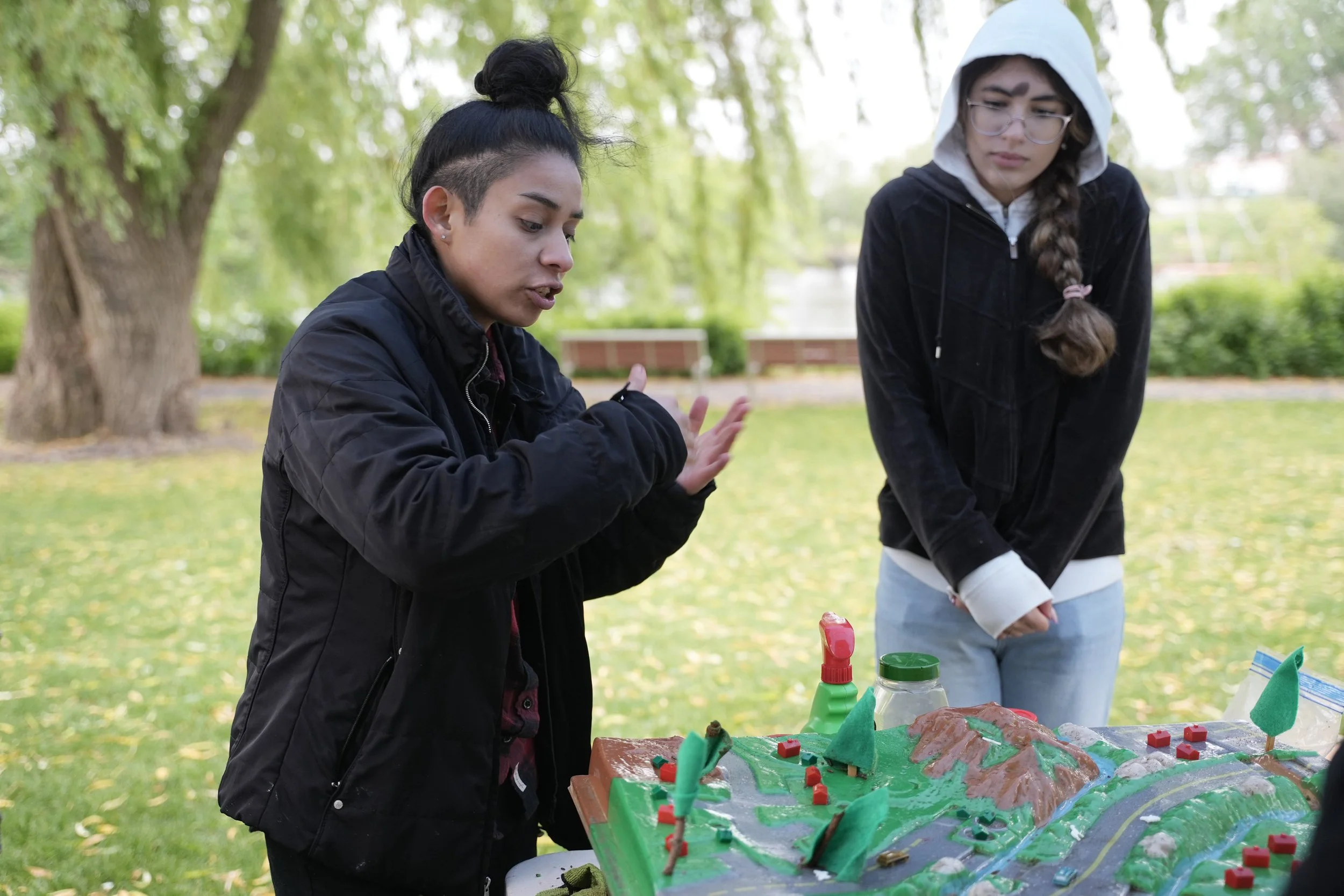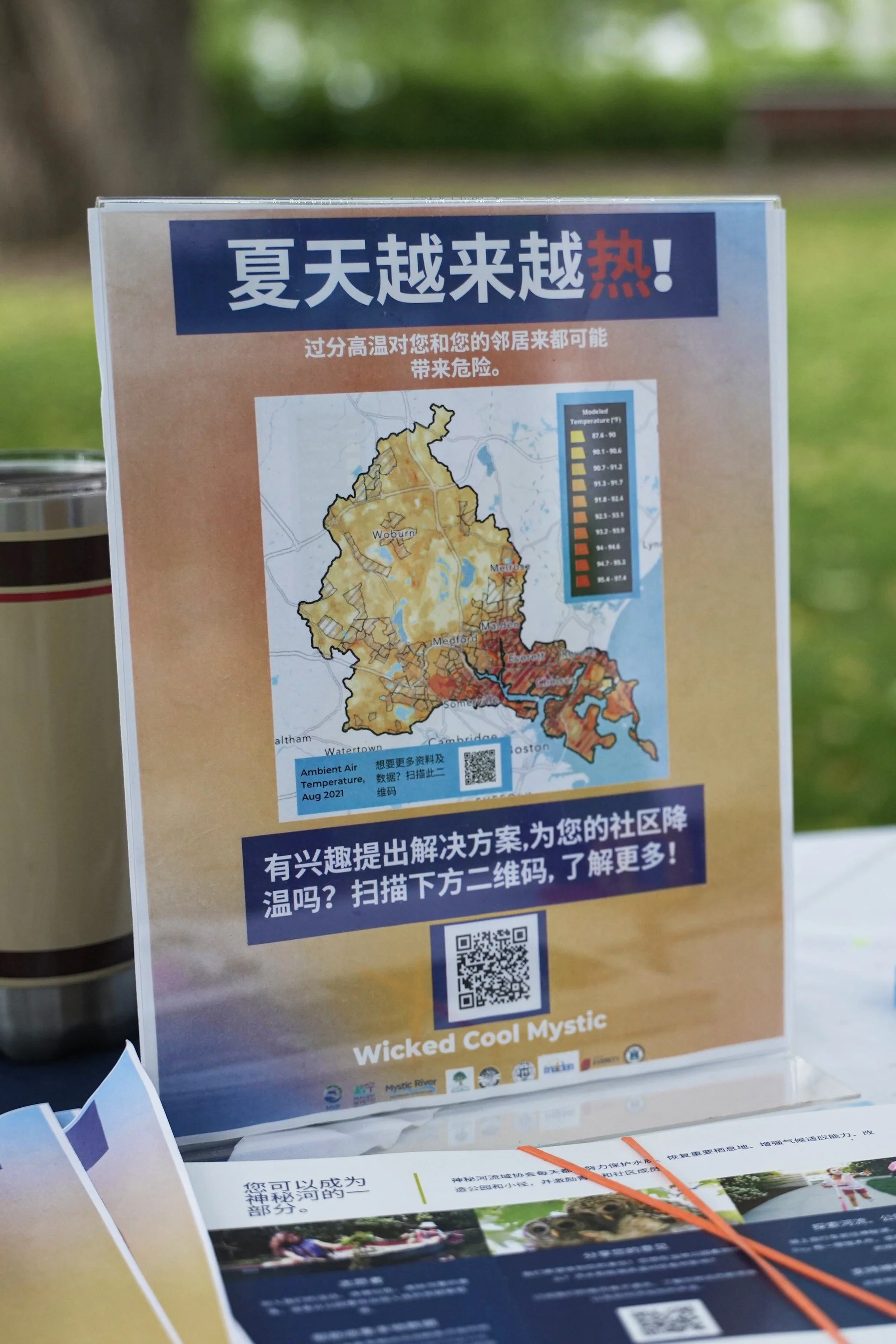What is Malden
River Works?
Overview
Malden River Works (MRW) brings together a new coalition of community leaders of color, environmental advocates, and government stakeholders to create Malden's first-ever public riverfront park and upgrade the City's Department of Public Works (DPW) for environmental sustainability and climate change.
The Malden River is a historically industrial area that has left almost no river access to residents for generations. Malden River Works brings the river back to the center of civic life with a restored riverfront landscape, new public boating dock, over two-hundred new trees, rain gardens, a generous open lawn space, along with critical environmental upgrades for the City's DPW.
The Park
Malden River Works is a community-led effort to build a resilient, inclusive riverfront park on Malden’s only city-owned riverfront site: 356 Commercial Street, currently home to Malden’s Department of Public Works (DPW).
The DPW will remain onsite, with a new yard space that includes improved drainage to mitigate flooding. The area around and behind the DPW building will transform- into a park space for all including tree-lined paths, a flexible use lawn area, and a dock.
The project will take place in two parts:
Construct the new DPW yard and park area, including all drainage infrastructure and landscaping (June 2026);
Construct a boat house on the new park property and a salt shed in the DPW yard.
Status: We’ve completed the phase 1 design, selected the contractor, and started site preparation and construction at the site.
The MIT Norman B. Leventhal Center for Advanced Urbanism awarded Malden River Works with the first ever Norman B. Leventhal City Prize.
Overarching Goals
To build a leadership coalition among Malden’s communities of color through the MRW Steering Committee as an alternative to traditional top-down planning approaches for open space, led primarily by government officials and professionals.
To create a ‘both-and’ model for riverfront development that resists green gentrification by creating a new climate-resilient park while also maintaining its existing public works use.
To strengthen the City’s climate resilience by upgrading the Department of Public Works, a critical responder in disaster recovery and severe weather, also responsible for keeping essential infrastructure systems (streets, water supply, drainage, and parks) functioning.
Team
Malden River Works's two-part team structure was designed to promote equity by centering leadership from Malden's communities of color: The MRW Steering Committee is made up of BIPOC resident leaders working alongside environmental and government partners to set project values and goals, engage with Malden’s diverse communities, and monitor project outcomes.
In 2019, following on work with local advocates to promote Malden River water quality and access, Kathy Vandiver (MIT CEHS) brought together the original Leventhal City Prize Project Team: of Marcia Manong (Malden community leader of color), Marie Adams (public realm designer), Karen Buck (Friends of the Malden River), Amber Christoffersen (Greenways Planner, Mystic River Watershed Association), and Evan Spetrini (City of Malden Planner). The MRW Project Team carries out the project’s work, from community outreach to design and construction.
The Malden River Works Design Team works with the City of Malden’s Office of Strategic Planning and Development to develop design, permitting, and construction plans for the current phase of construction.
In the spring of 2025, JJ Phelan & Son was awarded the contract for the first phase of construction, involving all non-building elements of the park and DPW.
Funding
This project was first made possible through a generous grant from the MIT Norman B. Leventhal Center for Advanced Urbanism, which has awarded Malden River Works with the first ever Norman B. Leventhal City Prize for equitable resilience. The Leventhal City Prize primarily funded the concept design process, design outreach and engagement, and stipends to support the work of the Steering Committee, along with funding support from MIT’s Center for Environmental Health Sciences.
The development of design, engineering, and environmental permitting plans was generously supported by the Municipal Vulnerability Preparedness (MVP) Program through the Massachusetts Office of Energy and Environmental Affairs (EEA).
The construction of Malden River Works is supported by a combination of federal, state, municipal, and private philanthropic grants, including:
Design Process:
A one-year long, community-led concept design process for Malden River Works was launched in the fall of 2019, involving community meetings and surveys, culminating in a Concept Design Report that was presented to the City in October, 2020. This report serves as a record of community priorities that were expressed through the process.
Project Design
Flexibility - Accommodate a variety of different uses and types of experiences.
Connectivity - Plan for greenway connections to the north and south along the river. Identify opportunities for better public transportation to the river.
River Access - Make connections visually and physically to the river. Create public boating opportunities.
Design Goals
Inclusivity - Create welcoming and safe access for people of all ages, backgrounds, and abilities.
Nature - Incorporate trees and plants, wildlife habitat, create opportunities for learning about natural systems, and create a sense of being in nature.
Celebrate Malden - Reflect the communities, stories, and cultures of Malden in the design.
Milestones
Since kicking off in 2019 with support from the inaugural Leventhal City Prize, thousands of Malden residents have contributed to the project vision and participated in cultural celebrations on the Malden River in anticipation of the new public park and DPW.
The project has raised over $13 million in funding from federal, state, local, and private grants for design, permitting, and construction, with the first major phase of the transformation to be completed in the summer of 2026.
Ways to Get Involved
-
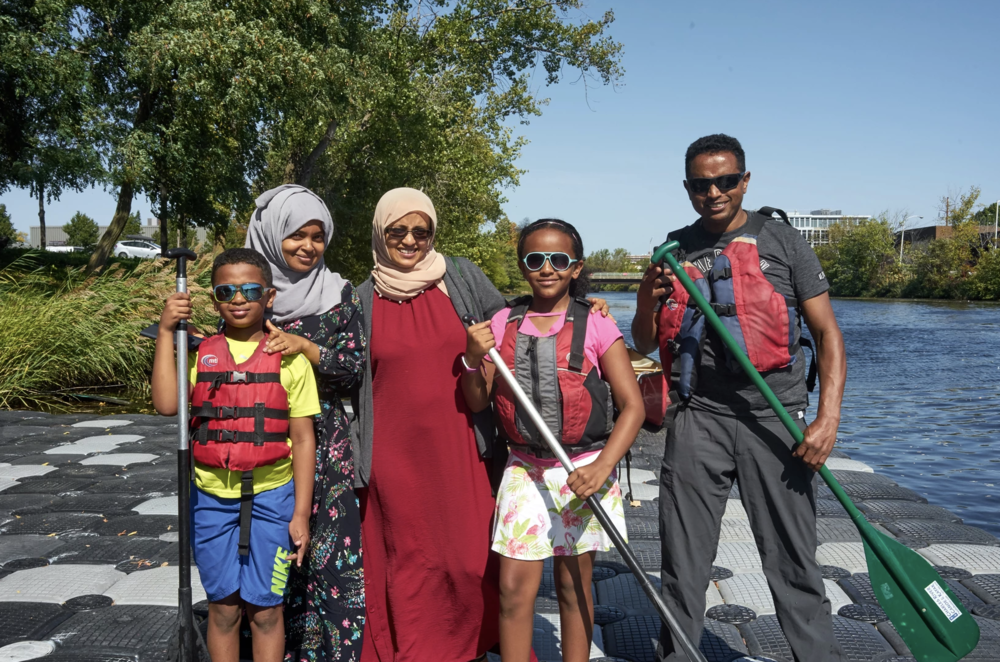
Explore the River
Not everyone knows the river exists. Currently, you can access it from Everett and Medford. Walk, bike, canoe, kayak, jog, and/or learn about this great natural resource.
-
Volunteer
Can you spare 4-5 hours a month to help with social media, web updates, or media. Check out this list of opportunities and contact us for more information.
-

Join community river cleanups
Would you like to help clean up the trash trap, pick up bottles in the river. Its great fun and you meet lots of people.
-
Learn More
This project and the river have a wonderful story. Whether you are interested in climate change, river ecosystem, building/design of a park or more….





